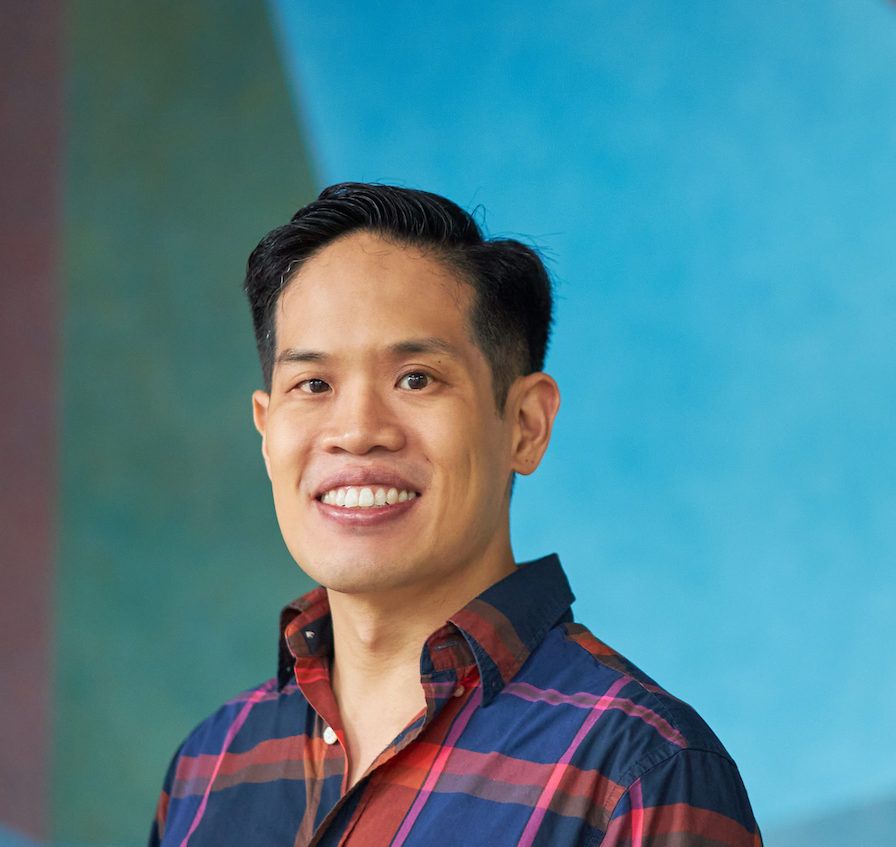
Associate Professor Andrew Hui loves to read, think, write, and talk to other humans (and occasionally trees). He studies the classical tradition of early modern Europe and the Global Renaissance. Every day, he tries to live up to Goethe’s maxim that “One ought, every day at least, to hear a little song, read a good poem, see a fine picture, and, if it were possible, to speak a few reasonable words.”
His work has been generously supported by the Whitney Humanities Center at Yale, a Berenson fellowship at Harvard’s Villa I Tatti, a National Endowment of Humanities grant for a summer of reading Dante in Florence, a Brian Crawford Award at the Warburg Library in London and a stint at the Centre for the Study of the Book at the Bodleian Library, Oxford. He is a fellow at the Wissenschaftskolleg, Berlin’s Institute for Advanced Studies for 2023-24.
He received his PhD from Princeton University in Department of Comparative Literature and is a graduate of St John’s College, Annapolis. From 2009-2012, he was a postdoctoral fellow in the humanities at Stanford University. He joined the faculty of Yale-NUS College in 2012 and was given the NUS Young Researcher’s Award in 2019.
As an Asian-American immigrant back in Asia, a 1.5 generation college graduate who stuttered in high school, he warmly welcomes conversations from all who seek meaning in the journey.
Assoc Prof Hui’s work is concerned with the classical tradition in European Renaissance culture. He is interested in how humanist authors absorbed and adapted the archive of antiquity in their literary works. His methodology is a deeply philological and transnational one—he has published across Latin, Italian, French, and English epic, drama, poetry and poetics. Some of the questions that guide his inquiry are: how are ideas transmitted across vast expanses of geography and chronology? What survives and what is lost in the afterlife of antiquity? How do poetic topoi, visual images, and theological symbols express the history of ideas?
Research Specialisations- Comparative Literature
- Classical Tradition
- Early Modern Cultures
- European and Global Renaissance
Assoc Prof Hui’s first book, The Poetics of Ruins in Renaissance Literature (Fordham University Press, 2016) argues that the period was a ruin-naissance, the birth of the ruin as a category of cultural discourse.
His second book, A Theory of the Aphorism (Princeton University Press, 2019) is a short book on the shortest genre of all: the short saying. It studies the ubiquitous yet under-explored form of the aphorism, one that pervades multiple literary traditions, from Heraclitus to Confucius, from Buddhist sutras to Pascal, from Nietzsche to Twitter. It has been reviewed in the New Yorker, TLS, and World Literature Today. Translations are forthcoming in Chinese, Spanish, Greek and Turkish.
His third book, The Study: The Inner Life of Renaissance Libraries will be forthcoming from Princeton University Press in Fall 2024. It is about bibliophilia, bibliomania, and the invention of the studiolo, with chapters on Petrarch, Machiavelli, Rabelais, Montaigne, Cervantes, and Shakespeare.
Works in progress are a monograph on Confucius the Stoic: The Encounter Between Chinese and Western Philosophy in the Age of Matteo Ricci, an edited volume on the theories and trans-histories of the Global Renaissance. Finally, he has an abiding interest in the phenomenology of shadows and wants to eventually write Negative Mimesis: Shadows as Metaphor and Method from Plato to Galileo.
Articles and Book Chapters
“Things in the Decameron,” I Tatti Studies (Fall 2022)
“Dreams of the Universal Library” Critical Inquiry (Spring 2022)
“13 Ways of Looking at Ruins,” in Material Remains: Reading the Past in Medieval and Early Modern British Literature (Ohio State University Press) 2021.
“Poussin’s Allegory of Ruins,” in Landscape and the Visual Hermeneutics of Place, (Brill, 2020)
“The Aphorism” New Literary History (2019), special issue on the short form
“Gems, Seeds, Silenus: Erasmus’s Theory of the Aphorism,” Erasmus Studies 38 (2018): 171-99
“The Soundscape of the Dying Pagan Gods in Milton’s Nativity Ode” Modern Language Quarterly 78 no. 3 (2017)
“The Many Returns of Philology: A State of the Field Report,” Journal of the History of Ideas 78 no. 1 (2017)
“Dante’s Book of Shadows: Ombra in the Divine Comedy,” Dante Studies 134 (2016)
“Wordless Texts, Empty Hands: The Metaphysics and Materiality of Texts in Journey to the West” Harvard Journal of Asiatic Studies 75 no. 1 (2015)
“The Birth of Ruins in Quattrocento Adoration Paintings” I Tatti Studies in the Italian Renaissance 18 no. 2 (2015)
“Horatio’s Philosophy in Hamlet,” Renaissance Drama 41 no. 2 (2013)
“The Textual City: Epic Walks in Virgil, Lucan, and Petrarch,” Oxford Classical Reception Journal 3 no. 2 (2011)
“Voice, Writing, and the Ovidian Play of Signs in Titus Andronicus,” in Ovid’s Metamorphoses in English Poetry, eds. Sabine Coelsch-Foisner and Wolfgang Görtschacher. Heidelberg: Universitätsverlag Winter, 2009.
“Texts, Monuments, and the Desire for Immortality,” in Moment to Monument, The Making and Unmaking of Cultural Significance, eds. Ladina Bezzola Lambert and Andrea Ochsner. Bielefeld: Transcript Verlag, 2008.
- Literature and Humanities I & II
- Global Renaissance
- Dante and the European Middle Ages
- Shakespeare and the Shape of Life
- The Cultural Histories of Libraries and Museums
- Gospels as Literature
- World Religious Poetry, with Gavin Flood
- Proseminar in Literature


